

The US non-farm payrolls data significantly exceeded expectations, with 254,000 new jobs added (expected to be 150,000), the unemployment rate falling to 4.05%, and average hourly wages remaining strong, raising questions in the market about the wisdom of the Feds 50 basis point rate cut last month.
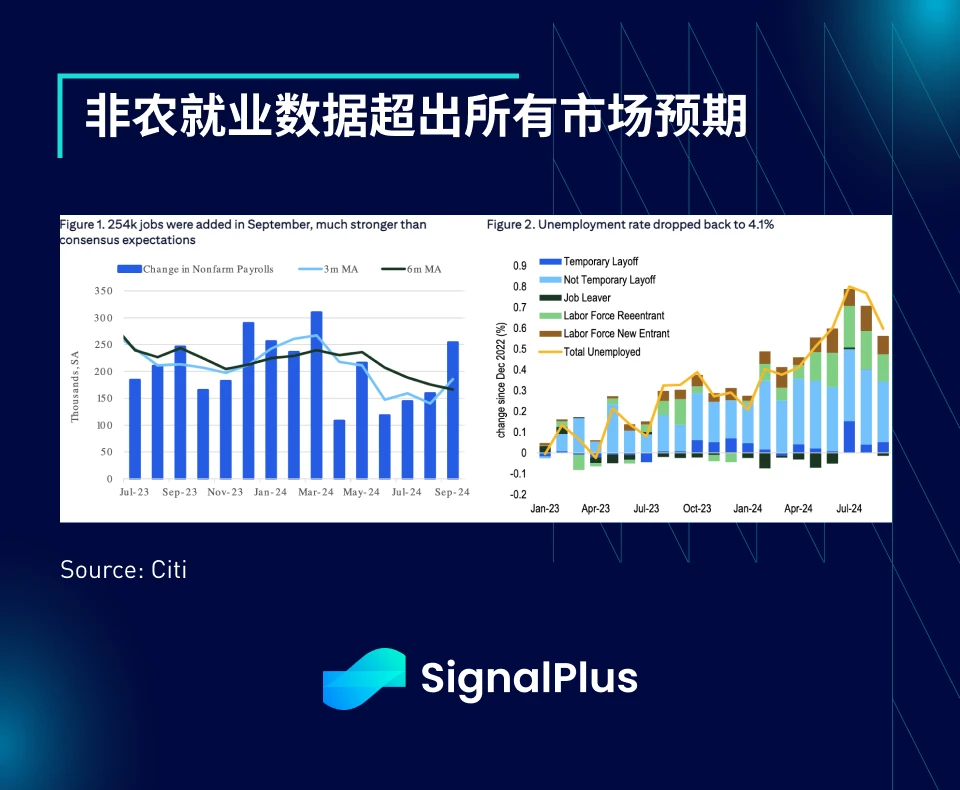
The fixed income market reacted violently, with the yield curve flattening sharply, short-term yields rising 20 basis points, the 10-year yield breaking through the upward resistance of 3.93% and expected to break through 4%, while the terminal rate soared 25 basis points to nearly 4.25%. The markets expectations for rate cuts cooled to the point that the next four FOMC meetings would only cut by 25 basis points.
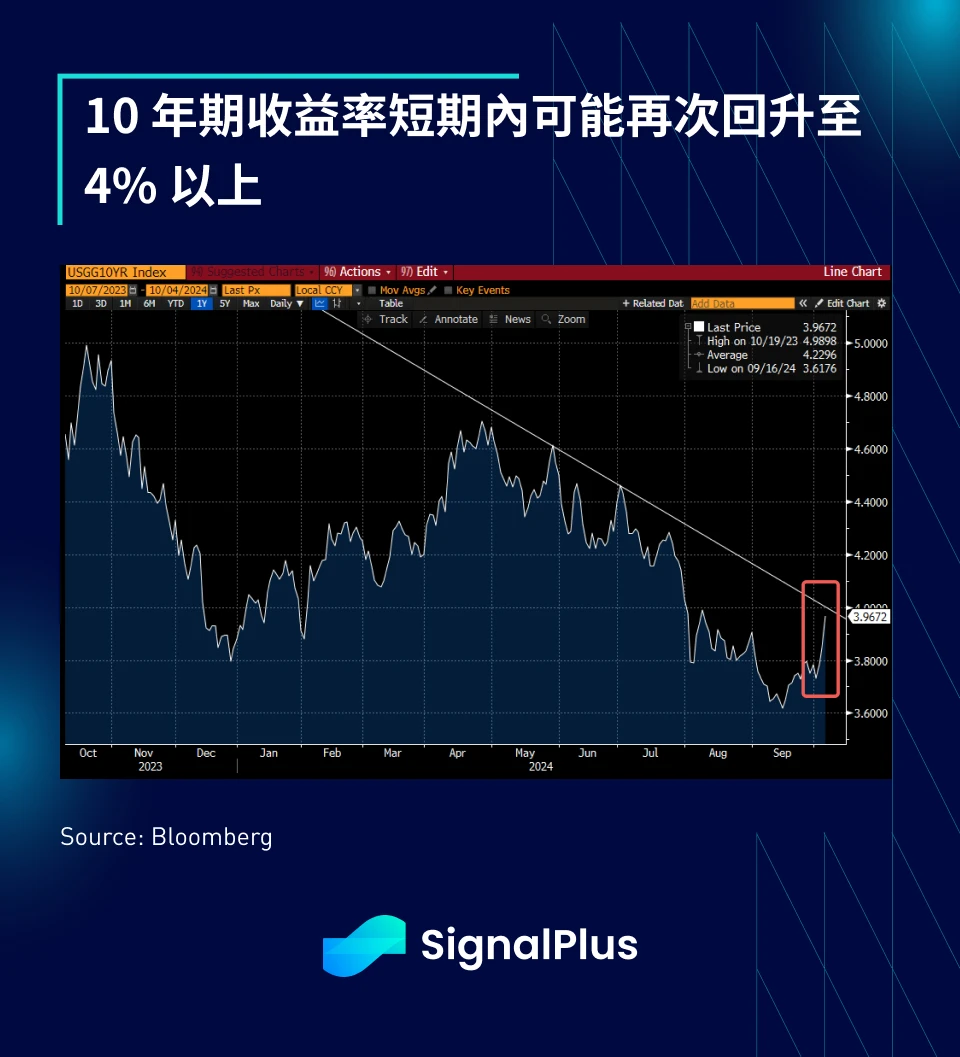
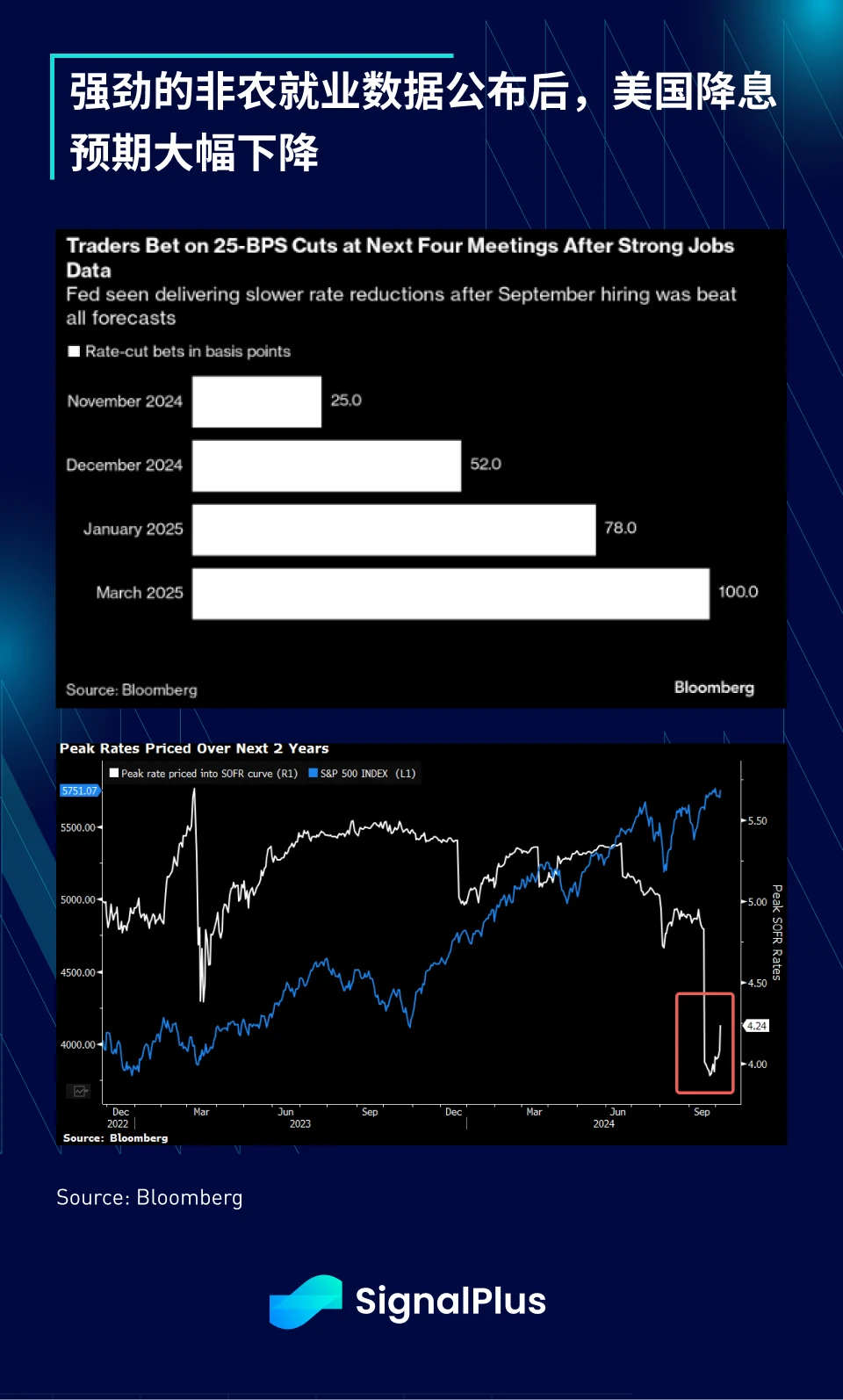
While fixed income markets struggled, the dollar strengthened against all major currencies, especially the yen, which rebounded strongly after Japans new Prime Minister Shigeru Ishiba said he would maintain loose monetary policy and launch a new stimulus package.
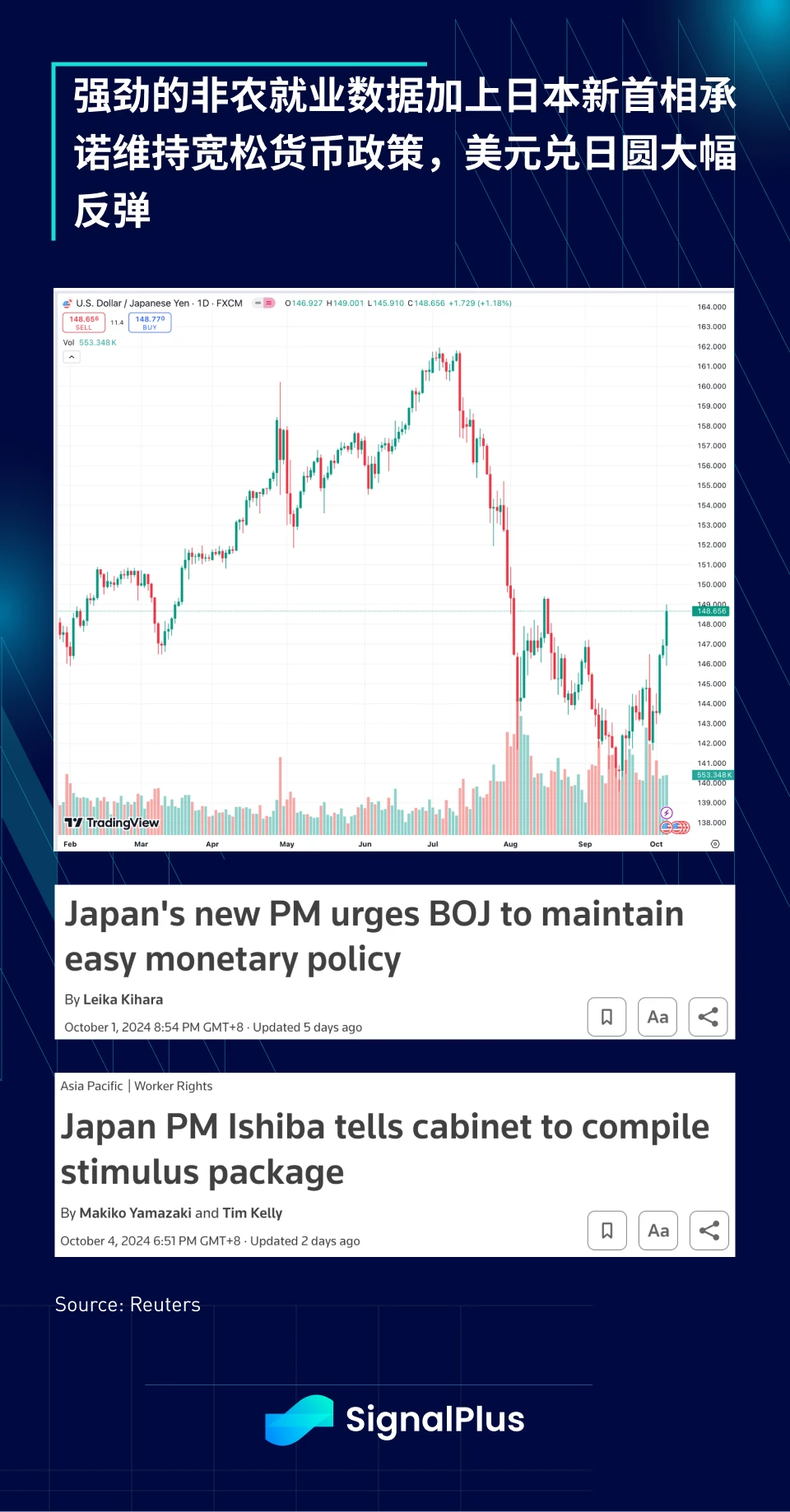
As expected, global stocks had another strong week, with most indices rising, and technology stocks performing particularly well. Strong economic data, friendly central bank policies, and even the timely cessation of the US dockworker strike have given investors good reasons to continue to maintain a risk-on attitude. In addition, a record $1.4 billion in funds flowed into Chinese assets through the FXI ETF, adding to the enthusiasm in the worlds second largest economy, further driving the rise of risky assets.
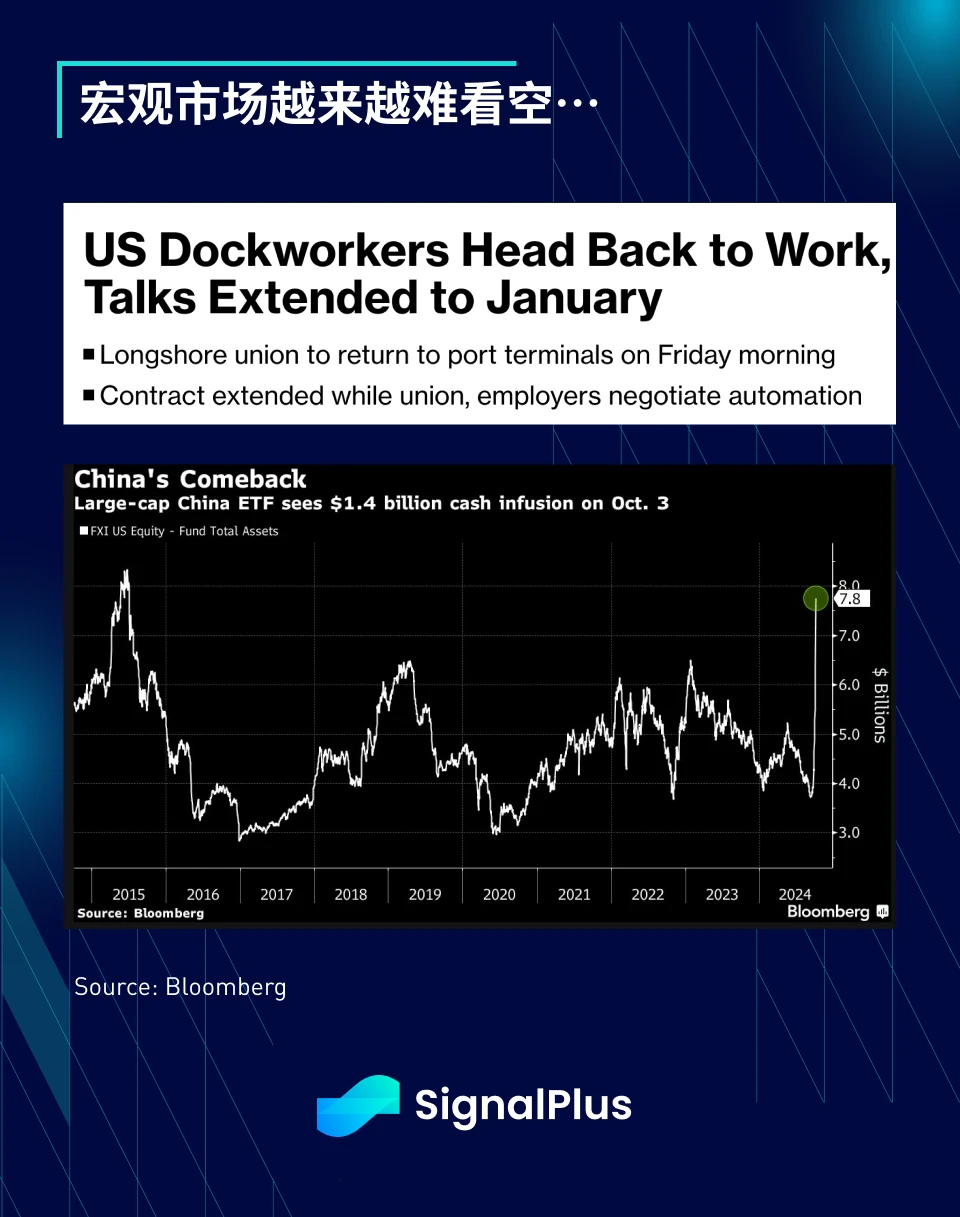
If we look back at history, Chairman Powells 50 basis point rate cut would appear more dovish, after all, both inflation and unemployment remain close to extreme levels, with PCE remaining around the top 15th percentile on a normalized basis, while unemployment is close to a decade low. In addition, similar to 2020, while the stock market was in a one-way upward trend, global central banks began to cut interest rates, which led to inflation expectations finally starting to rebound in the past few weeks.
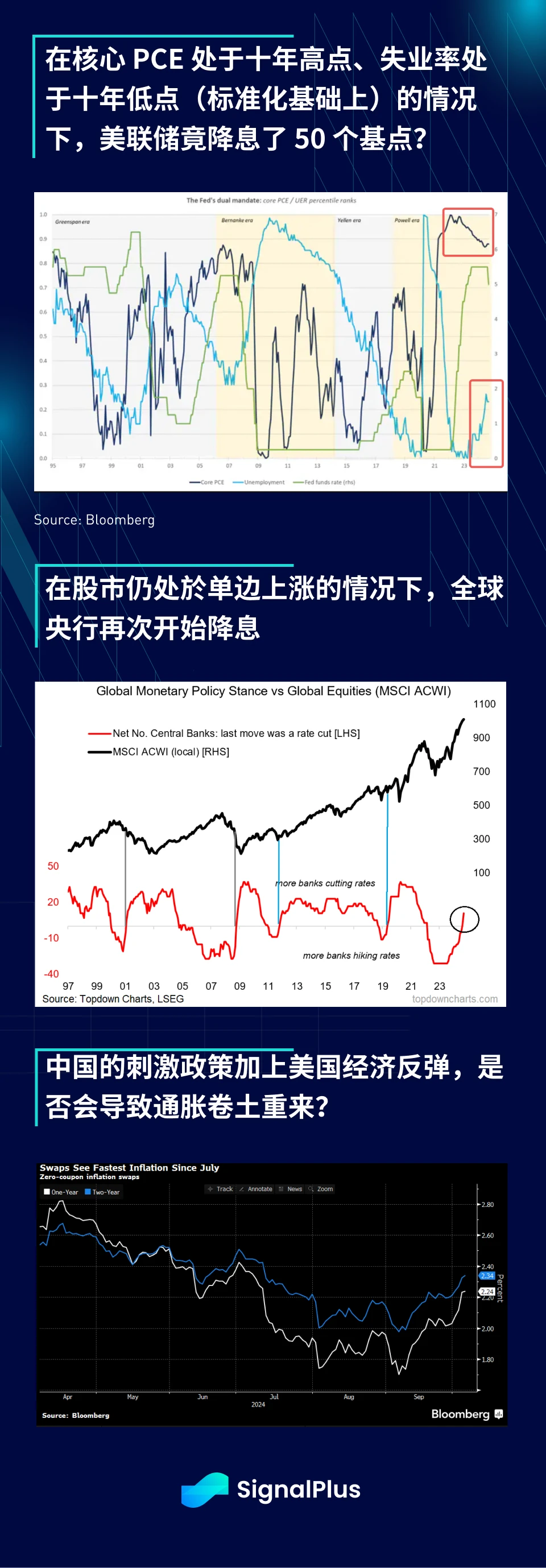
From a technical perspective, the chart of the US stock market looks very positive, with the indices hitting new 52-week highs at a rare pace, and other momentum indicators also showing a breakout higher. There is no doubt that current valuations are very high, with the SPX forward P/E ratio at an extremely high level, but price action is not necessarily driven by valuations.
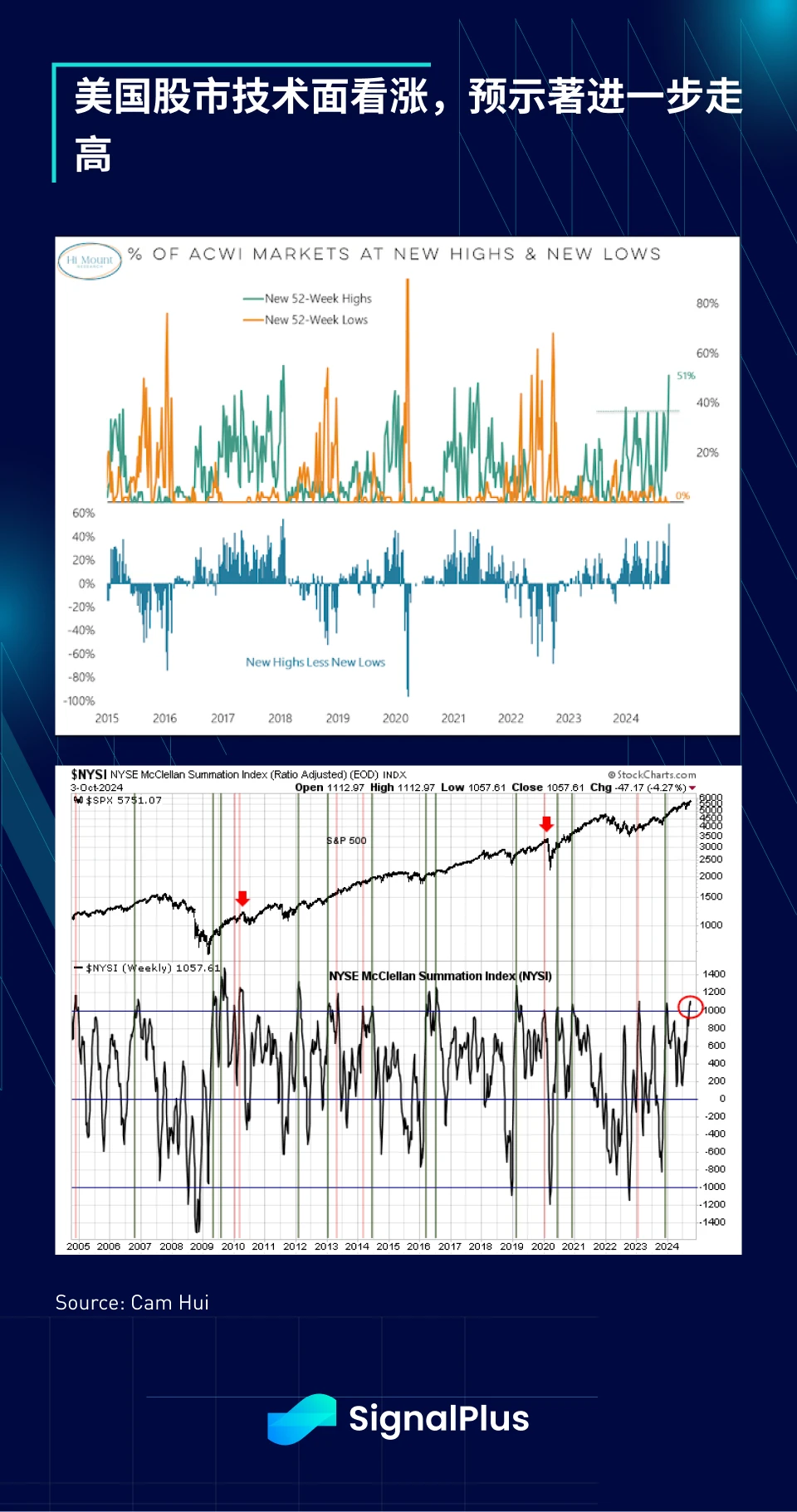
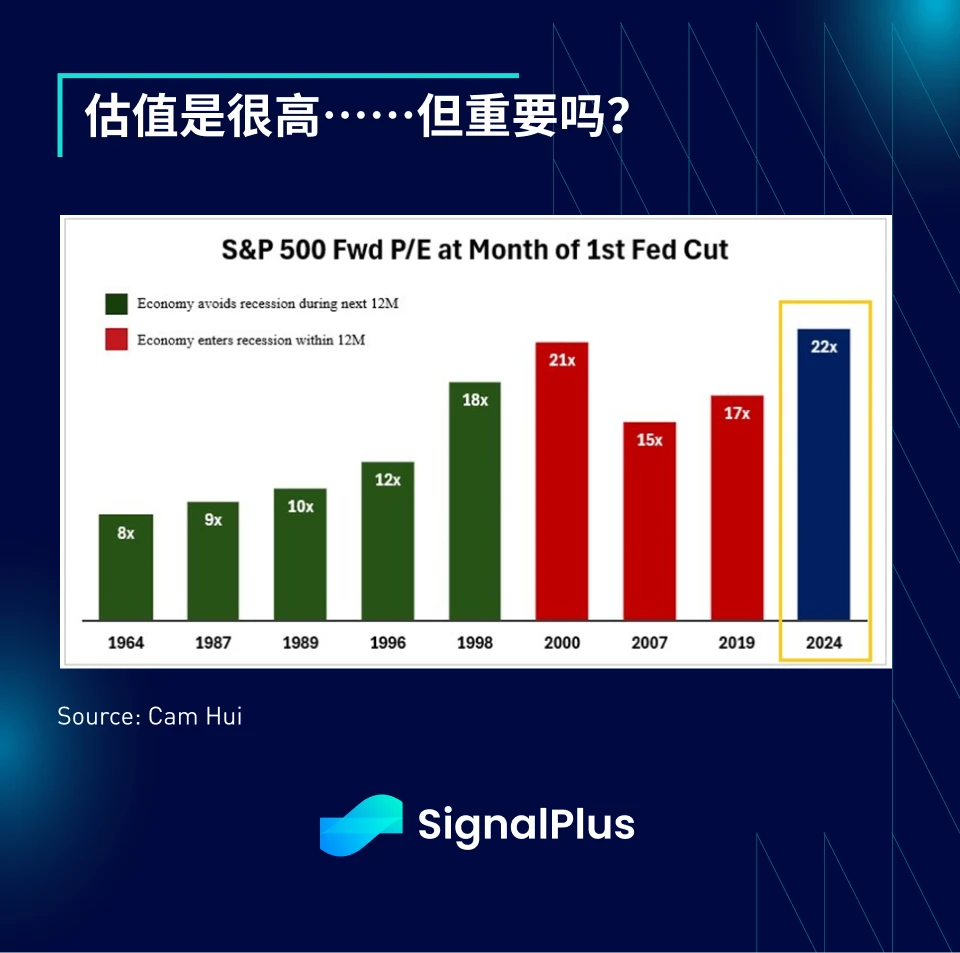
While macro markets were celebrating new highs and soft landing scenarios, cryptocurrencies performed poorly, having their worst start to October since 2019. BTC fell as low as $60,000 at the beginning of the month, and other altcoins performed not far behind (down 10% for the week). Some local FOMO sentiment seemed to be no match for the strong gains in A-shares. According to Coinglass data, nearly $500 million in cryptocurrency long futures were liquidated in the first few days of October.
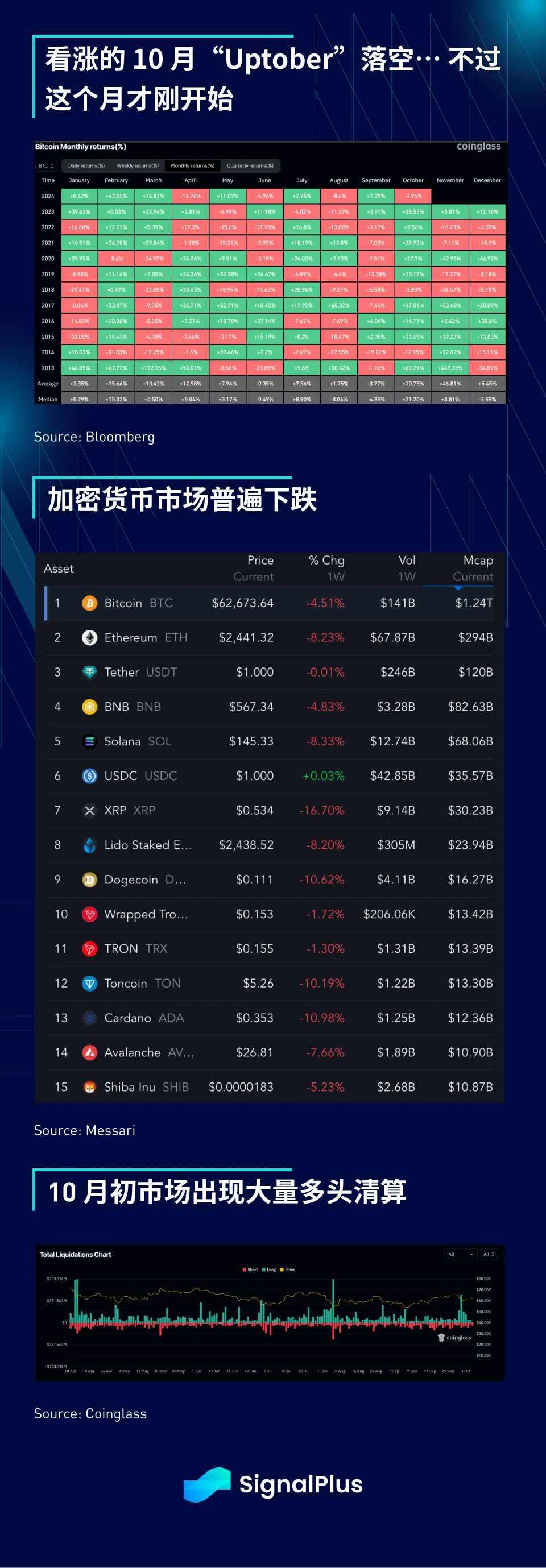
ETF inflows recovered slightly on Friday, but the overall trend remains worrisome. In addition, the failure of cryptocurrencies to act as a “risk-on” asset amid recent tensions in the Middle East cannot be ignored, and until that changes, cryptocurrencies will behave more like a high-beta asset.
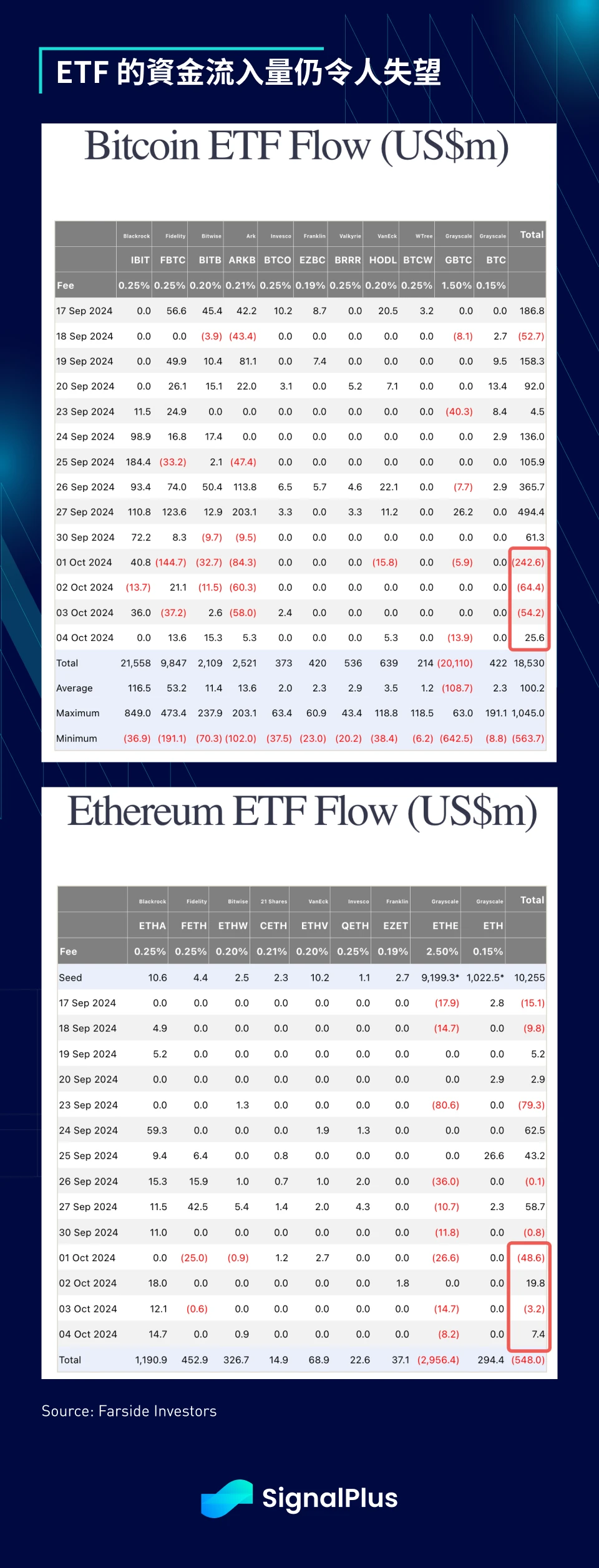
Nonetheless, we expect loose monetary policy, strong risk appetite, and a rebound in Trumps chances of winning (due to Kamalas poor handling of hurricane relief) to provide strong support for cryptocurrency prices in the fourth quarter. Although the road may be bumpy, we are still pleased with the recent price action, with each decline followed by a higher low, and BTC still has a chance to set new highs before the end of the year, after all, we are only entering October.

You can use the SignalPlus trading indicator function at t.signalplus.com to get more real-time crypto information. If you want to receive our updates immediately, please follow our Twitter account @SignalPlusCN, or join our WeChat group (add assistant WeChat: SignalPlus 123), Telegram group and Discord community to communicate and interact with more friends.
SignalPlus Official Website: https://www.signalplus.com










